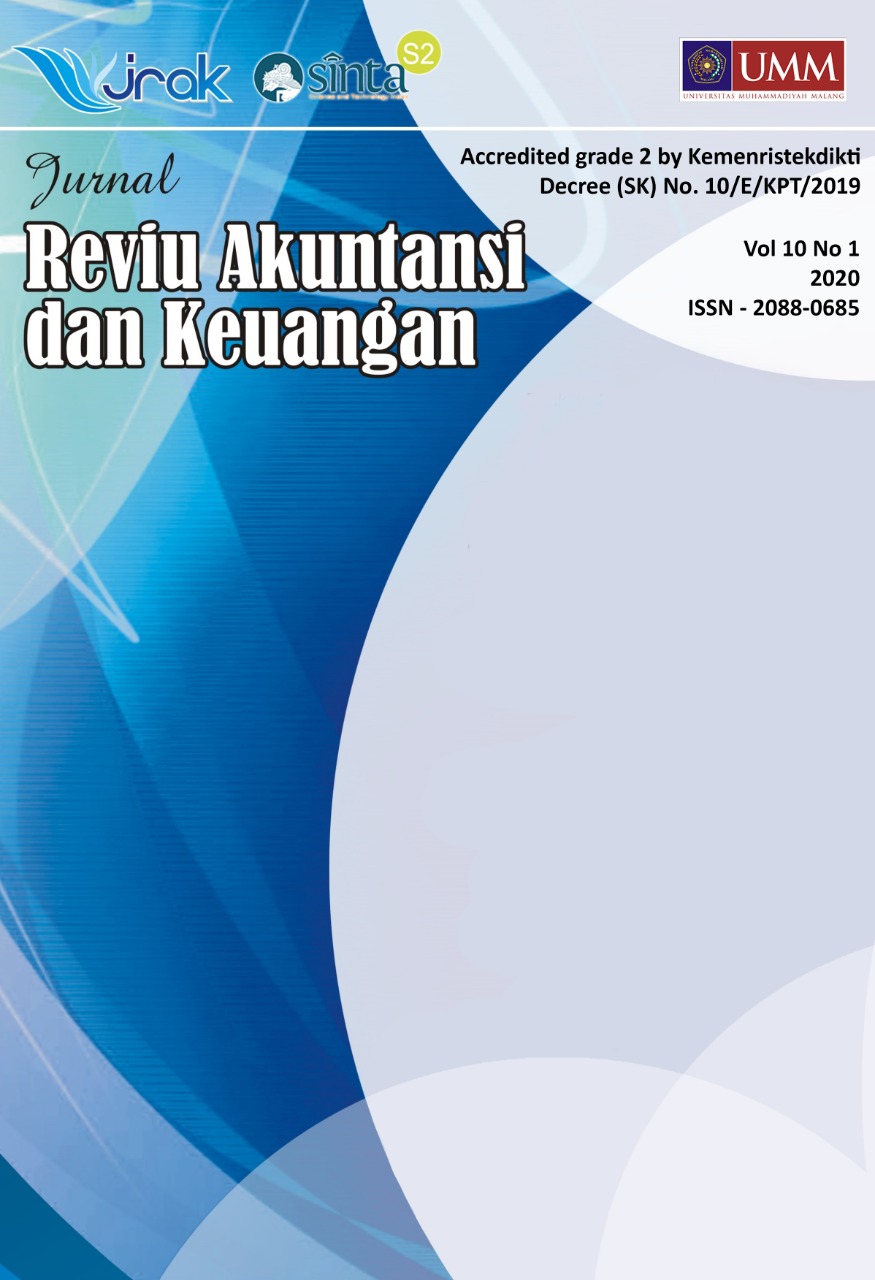FRAUD RISK ASSESSMENT: EXPERIMENTAL STUDY ON THE ALTERNATIVE FRAUD MODEL AND AUDITOR RISK PREFERENCES
DOI:
https://doi.org/10.22219/jrak.v10i1.11430Keywords:
fraud risk assessment, fraud model, risk preferenceAbstract
Fraud risk assessment is an important part of the audit process and one of the toughest challenges faced by auditors. In considering fraud risk assessment, fraud models and risk preferences can influence auditor’s decisions. This study uses a 2x2 between-subject experimental design with a total of 110 auditors of public accountant firms in Central Java as participants and produces 60 data ready for processing. Participants were formed into 4 groups with different treatments which the treatments consist of Diamond Fraud model with high and low risk preferences and Pentagon Fraud model with high and low risk preferences. The results show that the use of Pentagon Fraud model will result a more conservative fraud risk assessment. When auditors dare to take high risk action, the resulting fraud risk assessment will be low. In addition, the fraud model and risk preference variables show a significant influence on the performing of fraud risk assessment. There is an interaction between fraud models and auditors’ risk preferences in the performance of fraud risk assessment.
Downloads
Downloads
Published
Issue
Section
License

Jurnal Reviu Akuntansi dan Keuangan is licensed under a Creative Commons Attribution-NonCommercial-ShareAlike 4.0 International License.
Authors who publish with this journal agree to the following terms:
- Authors retain copyright and grant the journal right of first publication with the work simultaneously licensed under a Creative Commons Attribution-NonCommercial-ShareAlike 4.0 International License that allows others to share the work with an acknowledgement of the work's authorship and initial publication in this journal.
- Authors are able to enter into separate, additional contractual arrangements for the non-exclusive distribution of the journal's published version of the work (e.g., post it to an institutional repository or publish it in a book), with an acknowledgement of its initial publication in this journal.
- Authors are permitted and encouraged to post their work online (e.g., in institutional repositories or on their website) prior to and during the submission process, as it can lead to productive exchanges, as well as earlier and greater citation of published work (See The Effect of Open Access).










